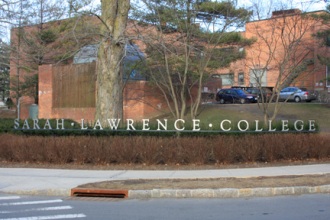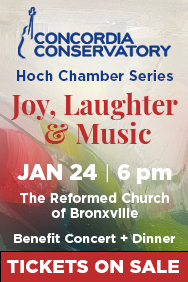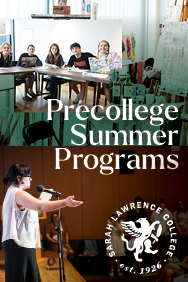Sarah Lawrence Professor Gives Lecture on Lessons from History of Public Sector Unions

By Bill Gaston, Secretary, Bronxville Democratic Committee
Mar. 20, 2019: “Lessons from the History of Public Sector Unions” was the title of a lecture delivered by Priscilla Murolo, professor of history at Sarah Lawrence College, at a public meeting of the Bronxville Democratic Committee on March 9 at the Bronxville Public Library.
Author of the book From the Folks Who Brought You the Weekend: An Illustrated History of Labor in the United States, Professor Murolo traced the historical, often unruly, roots of union organizing from the nineteenth century through the turbulent days of the New Deal and into the present day.
Professor Murolo said the history of labor organizing in the United States has been one of constant struggle against implacable and solid resistance from powerful, outside forces. Nonetheless, for many workers, unions have organized, and effectively mobilized, even outside the protection of the law. “Advances can be made and have been made without the cover of law,” said Professor Murolo. “Labor law matters, but it’s not the only thing that matters.”
Long before collective bargaining agreements achieved formal and legal recognition of unions, so-called “unorganizables” still managed to organize, she explained. She cited the case of unemployed workers who found jobs in the New Deal public works programs under the rubric of “workers alliances” and successfully won higher wages and better working conditions despite their status as temporary employees and their subsistence pay.
Another lesson from the history of public sector unions, said Professor Murolo, is the importance of what she called “social justice unionism,” forming and strengthening alliances between unions and like-minded community groups fighting for causes beyond workplace issues such as racial justice in the Jim Crow South. Though such alliances had the potential for developing frictions, they formed building blocks that developed stronger worker solidarity.
Employment in the public sector experienced rapid growth in the post-World War II period as the number of state, county, and municipal workers tripled. Like workers in the private sector, they sought to unionize. By 1955, private sector workers covered by unions reached their peak density, reaching 33% of the workforce. Perhaps not coincidentally, as economists including Paul Krugman have argued, data show that measures of income inequality were at their lowest during this period in American history and middle-class prosperity was at its highest.
During the late 1950s and into the 1960s, public sector unions grew swiftly as they partnered with civil rights activists and black freedom movements to gain a stronger foothold and greater acceptance in society. Black workers were strongly represented in these unions, which in turn enabled them to achieve middle-class status while strengthening their job protections.
Professor Murolo said this rapid period of public sector union growth came to a dramatic halt in the early 1980s with the election of President Ronald Reagan and a dramatic standoff in 1981 with 11,000 striking air traffic controllers. Considered one of the most pivotal events of late twentieth-century U.S. labor history, President Reagan fired the workers, decertified the union, and banned them from federal employment for the rest of their lives.
Though a new union was ultimately formed, the damage was done, said Professor Murolo. She said that President Reagan’s actions gave the green light to many private employers to bust unions and scale back worker protections. As a result, over the past few decades, private-sector unionization has plummeted to a mere 6.4% of the workforce, down from its peak of 33% in 1955.
In 2018, public sector unions received a crushing blow in the Supreme Court. In a 5-4 decision, the justices effectively outlawed--on free speech grounds--compulsory “fair share” agency fees levied on non-union members. The immediate impact of that decision, unions feared, would be a massive defection of dues-paying members and a crippling of union finances.
However, the worst fears of unions so far have failed to materialize, said Professor Murolo. “That’s not the way history works.” Rather than facing an exodus of members, unions have responded with reinvigorated registration campaigns, signing up new members and re-upping existing members. As one union head has remarked, the Janus decision was a necessary “kick in the ass for us.”
Despite relentless efforts on the part of movement conservatives to weaken if not destroy public sector unions, she is hopeful labor can survive. “There is more reason to hope than fear.” But she cautioned that it is important for unions to stay on the right side of public opinion. “If unions are seen as advocating bold action for the common good, the public will follow.” As evidence, she cited the recent work stoppages by teachers in Arizona, Kentucky, West Virginia, and Oklahoma that not only garnered surprising levels of public support in these “red” states but also resulted in agreements to increase teacher salaries and state education funding.
In From the Folks Who Brought You the Weekend, Professor Murolo concludes, “If no victory has ever been final, neither has any defeat.” That may be the final lesson of the history of public sector unions in the United States.
Pictured here: Sarah Lawrence College.
Photo by N. Bower
Editor's note: As a public service, MyhometownBronxville publishes articles from local institutions, officeholders, and individuals. MyhometownBronxville does not fact-check statements therein, and any opinions expressed therein do not necessarily reflect the thinking of its staff.
Adult Education Directory
About the Bronxville Adult School & Contacts
The Bronxville Adult School is a not-for-profit organization incorporated in 1957 and chartered by the New York State Board of Regents. The School "offers all adults of Bronxville and surrounding communities the opportunity for personal growth through life enhancing skills and provides cultural, intellectual and recreational stimulation at a nominal cost."
The Bronxville Adult School
(914) 793-4435
email: This email address is being protected from spambots. You need JavaScript enabled to view it.
www.bronxvilleadultschool.org
Bronxville Public Library
The Bronxville Public Library traces its origins back to 1875, when it was a small lending library housed in a room attached to the “Bronxville Model School.” The Library was officially chartered in 1906 and moved into the Village Hall Building. The needs of the library grew with the town and, in 1942, a new standalone building was erected, which is where the Library is today. Over the years, the Library was renovated and expanded to meet the needs of the community.
The Library has wonderful resources for adults and children and offers a comfortable and relaxing environment. The Library also houses a fine art collection, consisting principally of Bronxville painters and sculptors.
The Library offers special events, art exhibitions, and programs for adults, young adults and children. All events are open to the public, unless otherwise indicated.
The Bronxville Public Library
914-337-7680
201 Pondfield Road (Midland Avenue & Pondfield Road)
http://bronxvillelibrary.org/
Iona University
At Iona, you’ll find bright, curious students eager to achieve for themselves, and for others. We foster both innovative, independent thinking and a deep commitment to community.
Iona’s unique locations offer the best of both worlds. Our New Rochelle and Bronxville campuses provide comfortable, intimate learning environments. At Iona, everyone knows everyone and faculty members and students work closely together.
With New York City less than half an hour away, students have unlimited options for career development and internship opportunities. Not to mention, access to some of the best cultural attractions in the world!
No two Iona journeys are alike. But they all have a few things in common. High-quality academics, outside-the-box thinking and dedication to helping others underscore every Iona experience.
Sarah Lawrence College
Sarah Lawrence is a prestigious, residential, coeducational liberal arts college. Founded in 1926 and consistently ranked among the leading liberal arts colleges in the country,
Sarah Lawrence is known for its pioneering approach to education, rich history of impassioned intellectual and civic engagement, and vibrant, successful alumni. In close proximity to the unparalleled offerings of New York City, our historic campus is home to an inclusive, intellectually curious, and diverse community.
914-337-0700
1 Mead Way
Bronxville, New York 10708















